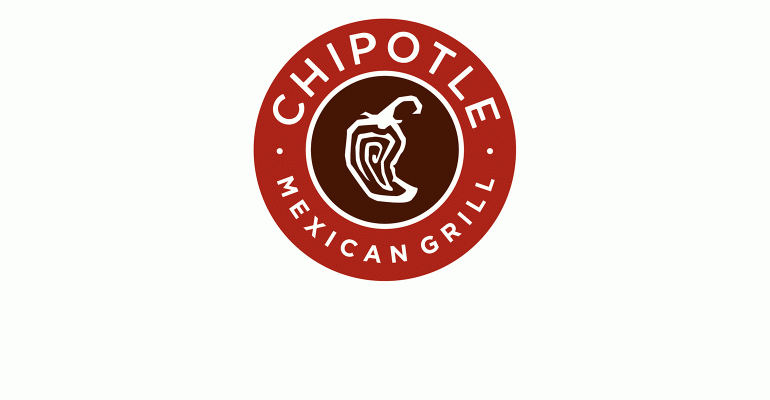In what analysts described as the most-anticipated conference call of the year, Chipotle Mexican Grill — and its newly minted CEO Brian Niccol — laid out a dizzying array of fixes intended to reboot the brand.
During the special investor call held Wednesday after the market closed, the former Taco Bell CEO and his executive team said Chipotle will shutter up to 65 cash-poor stores, introduce an afternoon happy hour menu, add delivery through its app, launch a loyalty program and deliver a pipeline of reliable new foods.

New marketing programs, led by CMO Chris Brandt who started in late March, will focus less on promotional items, and more on reminding customers of all ages why they love Chipotle.
“We want to be relevant and engaged with all category users, light medium and heavy,” Niccol said.
Brandt, who worked with Niccol at Irvine, Calif.-based Taco Bell, said Chipotle also plans to introduce a new tagline. He didn’t elaborate, only stating the phrase “will be a perfect fit” for the brand. It will be revealed in the fall.
The company has already made a noticeable pivot to show its playful side and cultural relevance.
In May, Chipotle announced its foray into eSports with the sponsorship of TSM’s Fortnite gaming team. That and other planned campaigns will make Chipotle a “brand people want to know about,” Brandt said.
In terms of unit-level operations, accessibility is one of Niccol’s priorities.
“We have very low awareness,” Niccol said.
In his first weeks on the job, Niccol said he reviewed every aspect of the company’s operations. One of the major “gaps” was brand access, especially when it comes to the company’s digital outreach.
“Half of the customers don’t know they can order ahead,” Niccol said.
To drive in-store and off-premise traffic, the company plans to add delivery as an option on its app, introduce a loyalty program and launch a happy hour. The latter would involve $2 food items from 2 to 5 p.m., a non-peak snacking hour that has seen success at other chains such as Taco Bell and Sonic Drive-In.
Niccol said in-store operations are being beefed up to handle more off-premise orders through the second-make lines. The stations, first introduced a couple of years ago, are in nearly every restaurant. The separate kitchen counters help increase throughput. Chipotle is also experimenting with digitally enhanced second make lines, which illuminate to show employees which ingredients are called for in each order.
The chain’s nearly 2,400 units will be carving out space for pick-up shelves for mobile orders. Niccol believes convenience and access through improved digital relationships will boost transactions and frequency.
He said digital sales are currently a “half billion dollar” business with virtually no marketing strategy to promote it. By increasing awareness, Niccol said “we think this can be a multi-billion opportunity.”
On the menu front, haphazard menu launches will be scrapped. While menu innovation is crucial, Niccol said items won’t roll out nationally without proper validation in test markets. Expect a new pipeline of foods in the second half of the year.
Some new products have already been revealed.
Last week, the traditionally tight-lipped company held a media event to showcase several meals and drinks the company is experimenting at a New York restaurant. The test items include nachos, quesadillas folded like flat burritos, a grapefruit tequila cocktail and a Mexican chocolate shake.
Other swift changes are store closures.
The company said in the next 30 days it plans to close 55-65 units, a rare move for the still-growing company. The “cash flow bleeders” include five Pizzeria Locale units in Kansas City, Mo., and Cincinnati.
The pizza restaurants closed June 27. A Chipotle spokesperson said the brand will continue to focus on the two locations left in the Denver area.
While store-level strategies dominated the call, few comments were made about the chain’s biggest bombshell: ditching its Denver headquarters for a new corporate office in Newport Beach, Calif.
In a brief discussion about the move, officials said the corporate restructuring and relocation, along with the store closures, would cost the company roughly $115 million to $135 million.
The relocation impacts roughly 400 employees in Denver and New York. Some will be offered relocation and retention packages.
California real estate sticker shock will likely mean some employees won’t make the move, analysts have previously told Nation’s Restaurant News.
Newport Beach is one of the priciest zip codes in Southern California. The average median home price in Newport Beach was $1.8 million for the period between January and April 2018, according to Irvine, Calif.-based based real estate data firm CoreLogic. By comparison, the median price in Denver for the same period was $410,000. However, CoreLogic notes that Denver is a large metropolitan city with a much more diverse housing stock.
Nonetheless, Niccol was asked about the advantages of uprooting the brand founded by Steve Ells in Denver in 1983.
Niccol, whose family lives in Newport Beach, gave one reason for the move.
“There’s lots of talent in the West Coast, and frankly across the country, that want to be a part of the Chipotle journey.”
The move to Newport Beach, a coastal enclave less than 15 miles from his former employer, is expected to occur over the next six months.
Niccol said most recovery initiatives will take time before results are realized.
“It’s important to be patient,” he said. “Changes don’t happen overnight.”
But, when those changes eventually materialize, he said: “I can easily see a future where Chipotle more than doubles the business to $10 billion in revenue.”
Contact Nancy Luna at [email protected]
Follow her on Twitter: @FastFoodMaven





